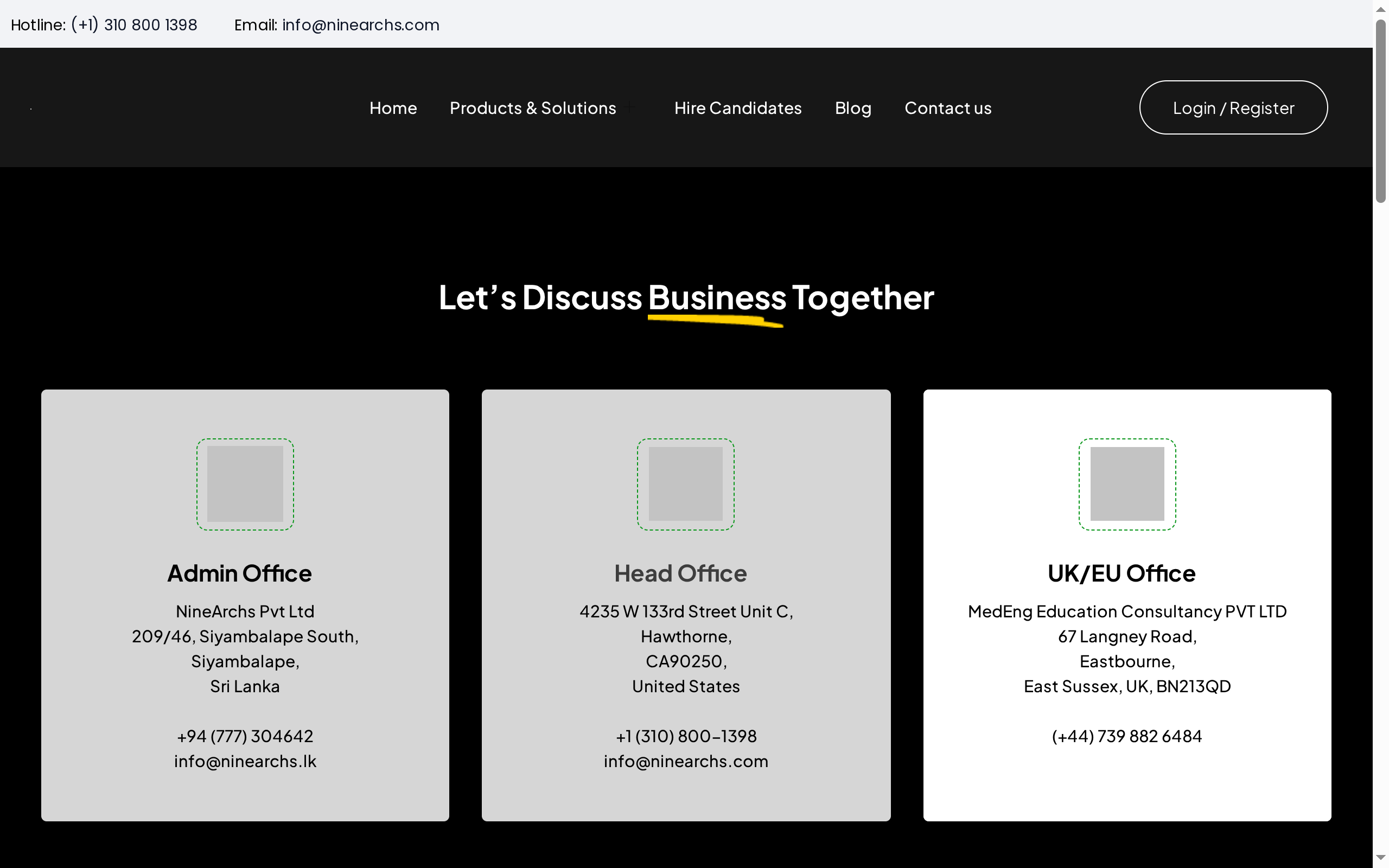Over 70 percent of companies now rely on HR support outsourcing to handle key workforce tasks. The growing demand for flexibility and specialized expertise makes traditional in-house HR teams harder to maintain, especially as regulations and talent needs keep evolving. By understanding what HR outsourcing covers and how companies use it, you can make informed decisions that improve efficiency and reduce costs without sacrificing control.
Defining HR Support Outsourcing and Its Scope
HR support outsourcing represents a strategic approach where businesses delegate human resource functions to external specialized service providers. This practice allows organizations to transfer specific HR responsibilities while maintaining core operational control. From administrative tasks to complex strategic initiatives, HR outsourcing enables companies to optimize their workforce management efficiently.
The scope of HR support outsourcing encompasses a wide range of functions, which can be broadly categorized into two primary domains: administrative services and strategic HR activities. Administrative services typically include routine tasks like payroll processing, benefits administration, and compliance management. Strategic HR activities, however, involve more complex responsibilities such as talent acquisition, organizational development, performance management, and employee training programs.
Understanding the contextual factors that influence HR outsourcing is critical. Exploring outsourcing benefits for companies reveals that political, economic, social, and legal landscapes significantly impact the potential range of HR functions that can be effectively outsourced. Companies must carefully assess their specific organizational needs, evaluating which HR functions are most suitable for external management.
Key characteristics that define HR support outsourcing include:
- Flexibility in service delivery
- Cost reduction and operational efficiency
- Access to specialized expertise
- Scalability of HR resources
- Enhanced compliance and risk management
By strategically selecting which HR functions to outsource, businesses can create a more agile, responsive, and competitive workforce management approach.
Types of HR Support Services Outsourced
HR support services encompass a diverse range of functions that organizations strategically outsource to enhance operational efficiency and focus on core business objectives. By understanding the various types of HR services that can be externally managed, companies can create a more streamlined and effective workforce management approach.
According to research, HR outsourcing can be categorized into three primary models: Application Service Providers (ASPs), Business Process Outsourcing (BPO), and Total HR Outsourcing. ASPs focus on providing software solutions and technological platforms for HR management. BPO handles specific HR processes like recruitment, payroll, and benefits administration. Total HR Outsourcing represents the most comprehensive approach, where an external partner manages all HR functions from end to end.
Exploring support tasks to outsource for greater efficiency reveals that organizations typically outsource services across three primary categories: strategic, tactical, and administrative. Administrative functions remain the most commonly outsourced services, including:
- Payroll processing
- Benefits enrollment
- Compliance documentation
- Employee record management
- Time and attendance tracking
Tactical HR services often involve more complex responsibilities such as recruitment, training program development, and performance management. Strategic HR services, while less frequently outsourced, can include organizational development, workforce planning, and talent management strategies. By carefully selecting which HR functions to externalize, businesses can optimize their human resource operations while maintaining critical organizational control.

Key Benefits and How Outsourcing Works
HR support outsourcing transforms traditional workforce management by providing organizations with strategic flexibility and operational advantages. While each business experiences unique outcomes, the fundamental mechanism involves transferring specific HR responsibilities to specialized external partners who can execute these functions more efficiently and cost-effectively.
The core benefits of HR outsourcing are multifaceted and extend beyond simple cost reduction. Understanding why business owners outsource for growth reveals that companies gain significant strategic advantages through this approach. Primary benefits include:
- Reduced operational expenses
- Access to specialized HR expertise
- Enhanced compliance management
- Improved focus on core business activities
- Scalable workforce solutions
- Advanced technological capabilities
The process of HR outsourcing typically follows a structured approach that involves careful assessment, vendor selection, and ongoing collaboration. Organizations begin by identifying which HR functions are most suitable for external management, then carefully evaluate potential service providers based on their track record, technological capabilities, and alignment with company culture. Successful implementation requires clear communication channels, well-defined performance metrics, and a collaborative partnership that allows seamless integration of external HR services with internal organizational objectives.
By strategically outsourcing administrative and tactical HR functions, companies can redirect internal resources toward high-value strategic initiatives. This approach enables HR teams to transition from transactional roles to becoming true strategic partners, focusing on talent development, organizational culture, and long-term workforce planning. The result is a more agile, efficient, and competitive organizational structure that can rapidly adapt to changing business landscapes.
Risks, Compliance, and Legal Considerations
HR support outsourcing introduces complex legal and compliance challenges that organizations must carefully navigate to protect their workforce and maintain regulatory integrity. The decision to outsource HR functions requires a comprehensive risk assessment that goes beyond simple cost-benefit analysis, demanding thorough due diligence and strategic planning.
7 Essential outsourcing best practices highlight critical considerations for managing potential risks effectively. Key legal and compliance risks include:
- Data privacy and protection regulations
- Potential violations of employment laws
- Intellectual property security
- Cross-jurisdictional legal complexities
- Confidentiality and information management
- Potential discrimination and labor standard risks
Effective risk mitigation requires organizations to develop robust contractual frameworks that clearly define responsibilities, establish comprehensive service level agreements, and implement rigorous vendor selection processes. Companies must conduct thorough background checks on potential HR service providers, verify their compliance certifications, and establish clear performance metrics and accountability mechanisms. This approach helps minimize potential legal vulnerabilities and ensures alignment with organizational standards and regulatory requirements.
Potential drawbacks of HR outsourcing can include financial consequences and potential loss of institutional knowledge. Organizations must carefully balance the operational advantages against potential risks, maintaining strategic oversight and creating flexible agreements that allow for periodic review and adjustment. By implementing comprehensive governance structures, maintaining transparent communication channels, and selecting partners with proven compliance track records, businesses can effectively manage the inherent complexities of HR support outsourcing while protecting their workforce and organizational interests.
Comparing Outsourced and In-House HR Functions
HR function management represents a critical strategic decision where organizations must carefully evaluate the advantages and limitations of both outsourced and in-house approaches. The complexity of this decision requires a nuanced understanding of how different HR activities align with organizational goals, operational capabilities, and strategic objectives.
Why outsource non-core functions provides critical insights into the strategic considerations of HR function allocation. Key differentiators between outsourced and in-house HR functions include:
- Cost structure and operational expenses
- Specialized expertise availability
- Organizational control and flexibility
- Technology and infrastructure requirements
- Scalability of workforce solutions
- Compliance and risk management capabilities
While administrative HR functions like payroll processing, benefits administration, and compliance reporting are often ideal candidates for outsourcing, strategic activities such as corporate culture development, talent acquisition, and long-term personnel planning typically remain in-house. Organizations must conduct a granular assessment of each HR function, evaluating whether external providers can deliver equivalent or superior performance compared to internal teams.
The ultimate decision between outsourced and in-house HR functions should be driven by a comprehensive analysis of organizational context, including company size, industry complexity, technological infrastructure, and strategic growth objectives. Successful HR function management requires a dynamic approach that allows for hybrid models, where certain functions are outsourced while maintaining critical strategic activities within the internal team. This flexible strategy enables companies to optimize operational efficiency, access specialized expertise, and maintain the unique cultural and strategic alignment essential for long-term organizational success.
![]()
Unlock the Power of HR Support Outsourcing with NineArchs
Struggling to balance the complex demands of HR functions while focusing on your core business growth? This comprehensive overview highlights the critical challenges of managing administrative tasks, compliance risks, and strategic HR initiatives effectively. If you want to reduce operational costs, increase access to specialized expertise, and seamlessly scale your workforce solutions, outsourcing with trusted professionals can be the key. NineArchs LLC understands these pain points and offers tailored HR-related business process outsourcing services designed to improve productivity and ensure regulatory compliance.

Take control of your HR operations today and transform how your organization manages vital human resource functions. Discover how our scalable, reliable, and cost-efficient outsourcing solutions empower mid-sized to large businesses to optimize workforce management without sacrificing quality or control. Ready to explore customized HR outsourcing options that align with your strategic goals and operational needs? Connect with our team now at NineArchs Contact to start a conversation about your unique challenges and unlock your company’s growth potential.
Learn more about how outsourcing non-core functions like HR can elevate your business strategies by visiting Why Outsource Non-Core Functions and gain insights into 7 Essential Outsourcing Best Practices. Your effective HR support partner is just one step away.
Frequently Asked Questions
What is HR support outsourcing?
HR support outsourcing is a strategic approach where businesses delegate specific human resource functions to external specialized service providers, allowing organizations to maintain control over core operations while benefiting from expert management of HR tasks.
What types of HR support services can be outsourced?
Commonly outsourced HR services include administrative functions like payroll processing, benefits administration, and compliance management, as well as tactical services such as recruitment and training program development. Total HR outsourcing encompasses the management of all HR functions by an external partner.
What are the key benefits of HR support outsourcing?
The primary benefits of HR support outsourcing include reduced operational costs, access to specialized HR expertise, enhanced compliance management, improved focus on core business activities, and scalable workforce solutions that adapt to changing organizational needs.
What are the risks associated with HR support outsourcing?
Risks of HR support outsourcing include potential legal compliance issues, data privacy and protection concerns, and the possibility of losing institutional knowledge. Companies must conduct thorough assessments and establish robust contractual frameworks to mitigate these risks.








